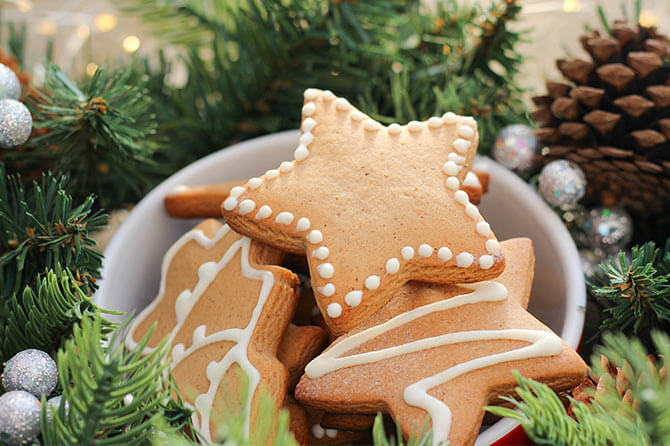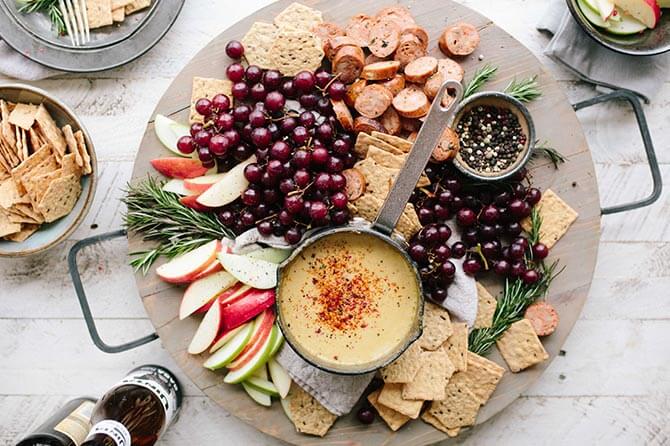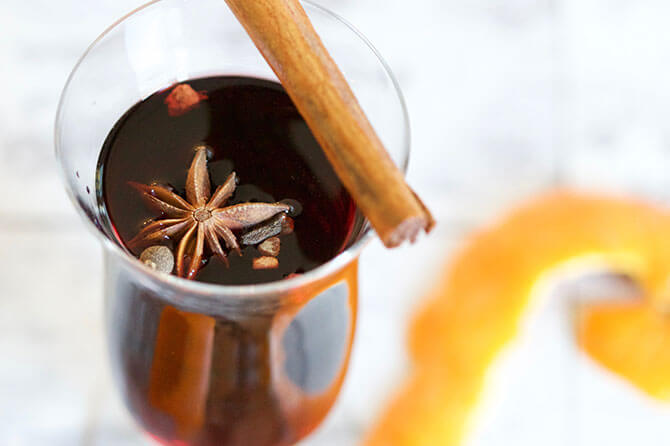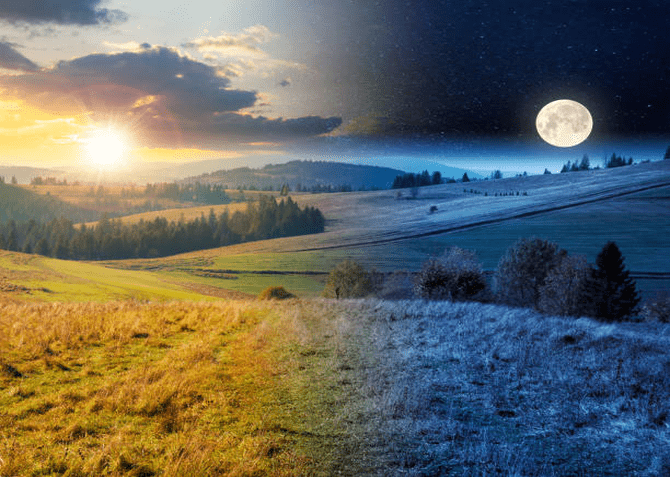
How Food Affects Sleep: Festive Edition
‘Tis the Season! Whether full-blown festive feasts or simple seasonal snacks, there’s always something tasty in range at Christmas. But to fully engage with the yuletide-y-ness, you’ll want to be well rested, so it’s useful to understand how food affects sleep - especially at Christmas.
Disclaimer: the internet is awash with articles telling you what you should or shouldn’t eat, and, often, how much you should or shouldn’t eat.
But we’re not here for it. Eat what you like at Christmas – it’s part of the joy. Engage your inner gourmet and devise previously unheard-of culinary combinations; you’ve earned it.
That said, we’d be remiss if we didn’t offer some insights on how food affects sleep, given the central role it plays in most people’s festive celebrations. So, let’s delve a little deeper, shall we?
The Relationship Between Food and Sleep
However you slice it (pun intended), there’s a bonafide link between food and sleep quality. Some foods are conducive to high-quality shuteye, others less so.
For example, certain nuts and berries promote natural, restful sleep, whereas starchier foods, such as roast potatoes, are more demanding on your digestive system, potentially damaging your sleep.
And it isn’t just the foods themselves, either. Other factors, such as when you eat, can influence the quality and quantity of sleep you get at night. [Who hasn’t struggled to sleep after a late-night sugar fest?]
Sounds like pseudo-science, right? But it isn’t. Like you and that relative, food and sleep quality share a complex relationship, always a whisker away from boiling over into disagreement.
Fortunately, smarter individuals than us have identified several key points, which we’ve distilled to their essence and presented below as digestible factoids.

Walnuts & Cranberries: Sleep Allies
Cranberries are everywhere at Christmas. They’re the mixer in your Christmassy cocktail. The tangy kicker on your seasonal sandwich. The basis of your festive fruit pie.
Walnuts are equally ubiquitous during the festive period, featuring in cakes, cameoing as a candied snack, and even forming the foundation of vegan cheese.
And you guessed it – both are utterly bursting with vitamins and antioxidants, supporting sleep, and improving your overall health and well-being.
You see, cranberries and walnuts are both contain melatonin - a hormone that promotes natural sleep - as well as other known sleep allies such as vitamin c, calcium, iron, and magnesium.
So, if you usually eat around your cranberry sauce, or remove the walnut from the whip, maybe don’t this year.
Timing. Timing. Timing
It’s 10:32 pm. Everyone else is asleep. You’re relaxing on the couch, half-watching a Christmas episode of your favourite sitcom, half-snooping on what gifts your friends got.
Then, you realise there’s chocolate in the fridge. Your favourite. If you eat it now, you won’t have to share. (Read: get the smallest piece). So, you eat it. And it’s divine. Endorphins for days.
But later, as you toss and turn, you curse that chocolate, and the sugar rush that it’s brought upon you.
As noted earlier, when you eat is as important (if not more important) than what you eat at Christmas. And it’s to do with our old friend, your circadian rhythm.
For the uninitiated. your circadian rhythm is your body’s internal clock. Its job? Regulating your sleep cycles. But it’s easily upset. And when it’s upset, your sleep suffers.
So, as you can imagine, altering your eating habits, even temporarily, can have a huge impact on your sleep.
But how, exactly? Well, according to research from the MRC Laboratory of Molecular Biology and the University of Manchester, it concerns insulin which plays a key role in resetting our circadian rhythm. Simply, when we eat, our insulin levels spike, which stimulates the production of a protein known as PERIOD.
If produced at the wrong time (like late at night) PERIOD disrupts your circadian rhythm, making it extremely difficult to drift off.
And the festive season adds another layer of difficulty as most foods we consume during this time are fatty, sugary and high in carbohydrates; each requiring energy to digest and metabolise. And the later your body begins this process, the higher the risk to your sleep.
And that’s before you factor in acid reflux. As discovered in research conducted by the Department of Gastroenterology at Osaka City University, eating a heavy meal within three hours of bedtime drastically increases the likelihood of acid reflux during the night.
Timing, as they say, is everything.
Alcohol Giveth, Alcohol Taketh Away
We couldn’t examine festive food and sleep without a (brief) detour into grape and grain territory.
In moderation, a festive tipple can enhance your evening, stimulate conversation, and facilitate all manner of festive frivolity. However, drink too much or too late, and you’re likely to damage your sleep.
You see, despite the notion that a sneaky sherry or late-night mulled wine helps you drift off, research conducted by the Henry Ford Hospital identified that while alcohol before bed does help you reach deeper stages of sleep in a shorter space of time, it also triggers a ‘rebound’ during the night.
Meaning? Well, once the alcohol wears off, you’ll spend the rest of the night in a much lighter sleep stage, therefore not getting the restful sleep your body needs (guaranteeing a groggy, grouchy start to the following day).

How to Eat (and Sleep) Well Over the Festive Season
Your mileage will vary. Everyone is different. But there are a few universal truths to getting better sleep at Christmas, despite the potential pitfalls of festive food and drink.
For example, try not to consume fatty foods and alcohol within the three hours leading up to bedtime. And try eating a handful of walnuts before bed to get the most out of their melatonin-y goodness.
You might also consider a glass of warm milk (plant-based for bonus sleep points) before bed as it’ll ease any bubbling acid reflux. It’s super-cosy, too. You’ll feel like you’re in a Christmas card.

And there we have it. A handy guide to festive food a drink and how it can disrupt or promote restful sleep. For more advice on getting better sleep, be sure to check out our sleep blog.









Leave a Reply